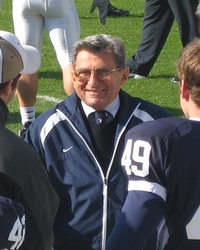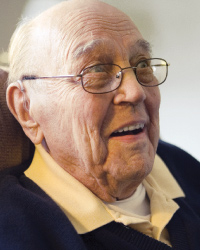New Article by Prof. Mitten on Coach Liability for Player Injuries
 The recent news of two lawsuits brought by the families of high school football players who died after strenuous summer workouts raises difficult questions regarding the legal and ethical obligations of coaches to protect their players from harm. Coincidentally, Matt Mitten has a new paper on SSRN that explores just such questions. Among other things, Matt thoroughly surveys the leading tort cases from across the country. He highlights significant state-to-state variations in the law and identifies what may be an emerging (and troubling) trend among courts toward a special liability standard for coaches that is less protective of athletes than ordinary negligence. Here is the abstract to Matt’s paper:
The recent news of two lawsuits brought by the families of high school football players who died after strenuous summer workouts raises difficult questions regarding the legal and ethical obligations of coaches to protect their players from harm. Coincidentally, Matt Mitten has a new paper on SSRN that explores just such questions. Among other things, Matt thoroughly surveys the leading tort cases from across the country. He highlights significant state-to-state variations in the law and identifies what may be an emerging (and troubling) trend among courts toward a special liability standard for coaches that is less protective of athletes than ordinary negligence. Here is the abstract to Matt’s paper:
Regardless of the level of athletic competition, a coach is not an insurer of an athlete’s safety and is not necessarily liable for injuries that occur while coaching a sport. Although coaches generally are not liable for athlete injuries that are ‘‘part of the game,’’ there is potential legal liability if a coach’s action or inaction increases the inherent risks of injury in a sport. To recover damages for an injury, an athlete is required to prove tortious (i.e., wrongful) action or inaction by a coach caused his injury. This chapter provides an overview of the developing law regarding the nature and scope of a coach’s duty to protect the health and safety of athletes participating in youth and high school sports (who generally are minors entrusted to coaches’ custodial care) or college sports (who generally are adults that do not have a custodial relationship with their coaches) and illustrates a coach’s ethical obligation to do so. It also notes that state statutes and judicial decisions may immunize coaches at public educational institutions from liability for negligence that causes injury to athletes, and that pre-injury releases and waivers may protect both private and public school coaches from liability for their negligence.
The paper will be published as a chapter in Ethics and Coaching (Robert L. Simon ed., Westview 2012).


